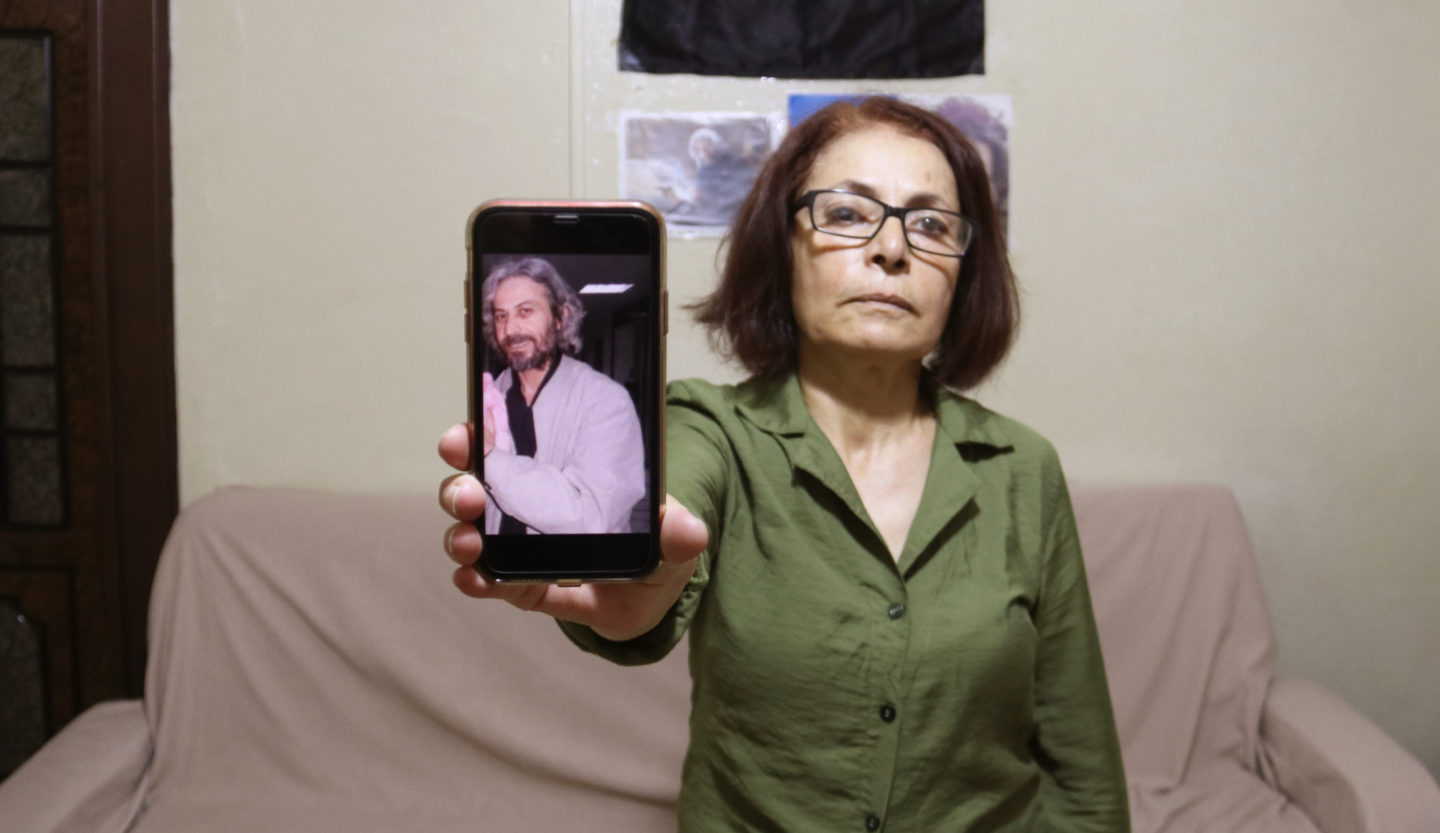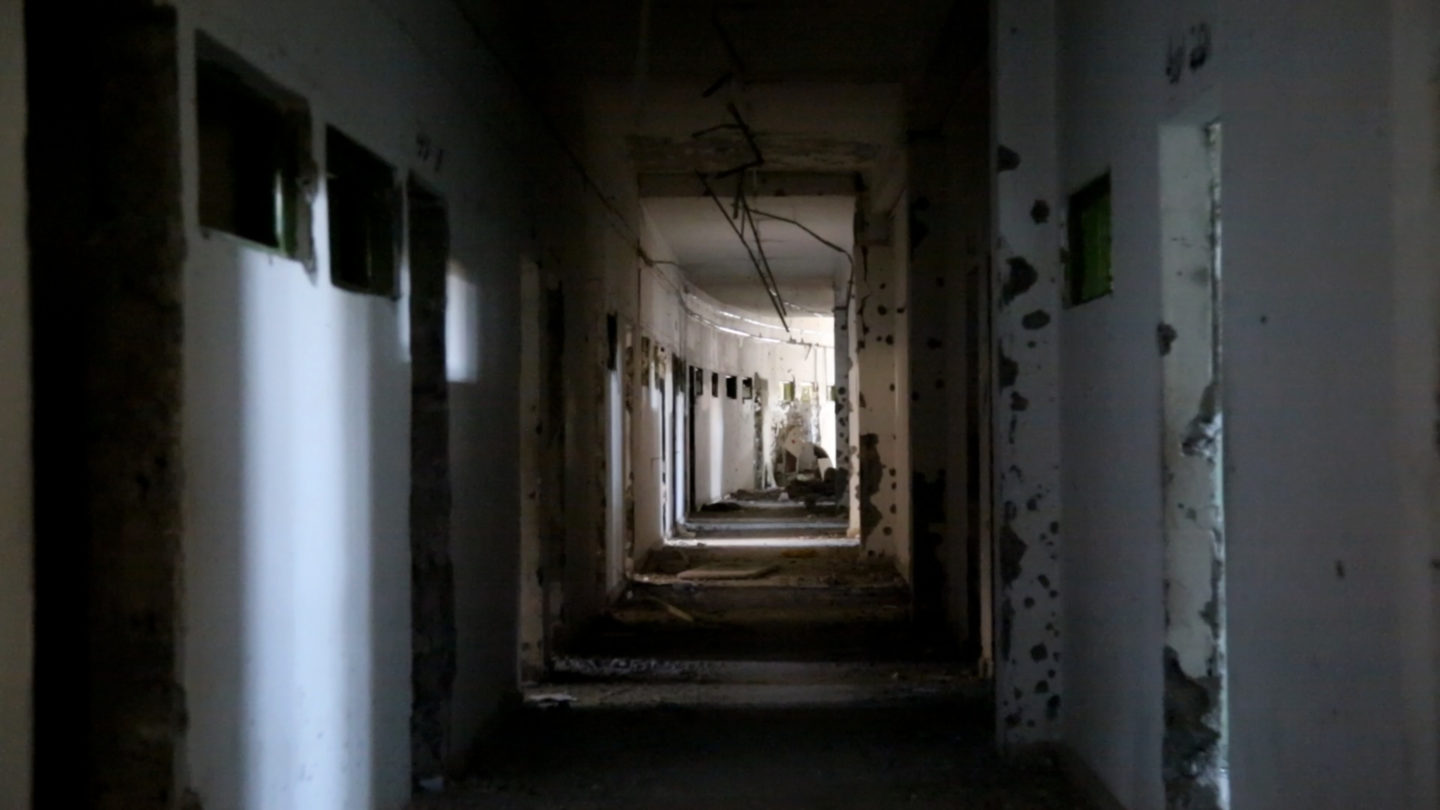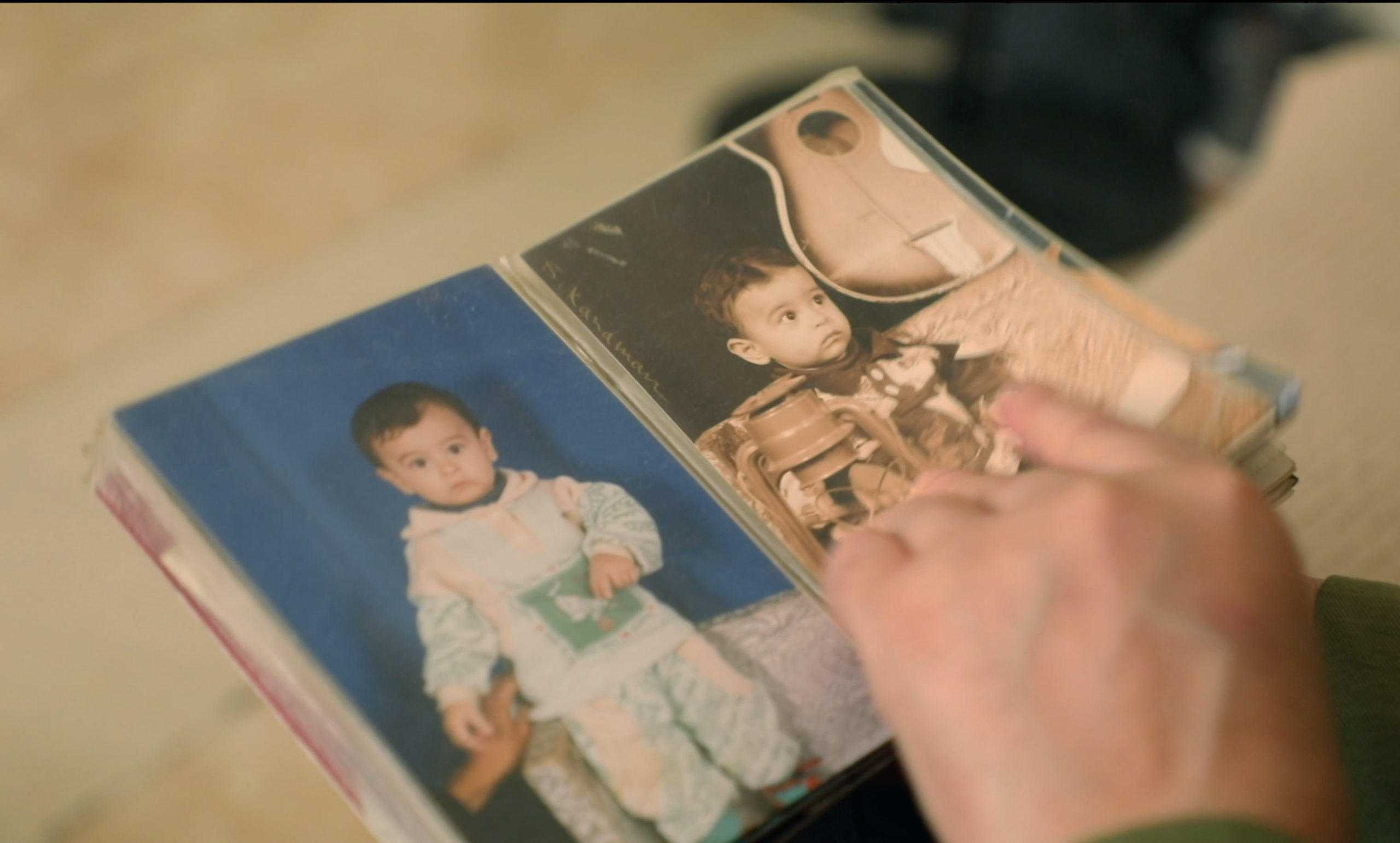Thousands of Syrians were kidnapped by ISIS, but even after the fall of the extremist group, not enough has been done to find them, give answers to their families, or to seek justice for these crimes.
Families have a right to know what happened to their loved ones.
Thousands of Syrians are believed to be missing after having been kidnapped by the Islamic State (ISIS: the Islamic State or Daesh is a terrorist Jihadi group made up of Syrian, Iraqi, and foreign recruits.ISIS). While the real number is difficult to estimate, more than 8,300 cases of disappearance have been documented.
The extremist group once controlled a third of Syria, brutally repressing, disappearing or killing anyone who opposed it. Now that the Syrian northeast territory formerly occupied by ISIS has been liberated, families are asking about the fate of their loved ones.

Ensaf Nasr holding a portrait of her missing husband, Fouad al-Mohamad
“I’ve been searching for answers about my husband’s fate for years but always face dead ends. It’s the responsibility of those who have control over northeast Syria to give us the answers.”
Ensaf Nasr
The unknown truth
The kidnapped might still be alive, held in unknown locations. Many of the prisons and detention centers used by ISIS haven’t been identified and some detainees could have escaped when prisons were damaged by airstrikes carried out by the US-led Global Coalition to Defeat ISIS: a broad international coalition formed by the United States in September 2014.US-led Global Coalition to Defeat ISIS.
Evidence from former ISIS prisons might have been neglected or mishandled by the Syrian Democratic Forces (SDF): a US-backed, Kurdish-led alliance of Kurdish and Arab militias formed in 2015 as part of the campaign to defeat ISIS.US-backed Syrian Democratic Forces (SDF). Mass graves have also been discovered by local communities and a First Responders Team: Team of local people created by local councils in the northeast to undertake exhumations of mass graves.First Responders Team has been created by local councils in the northeast to undertake exhumations.


